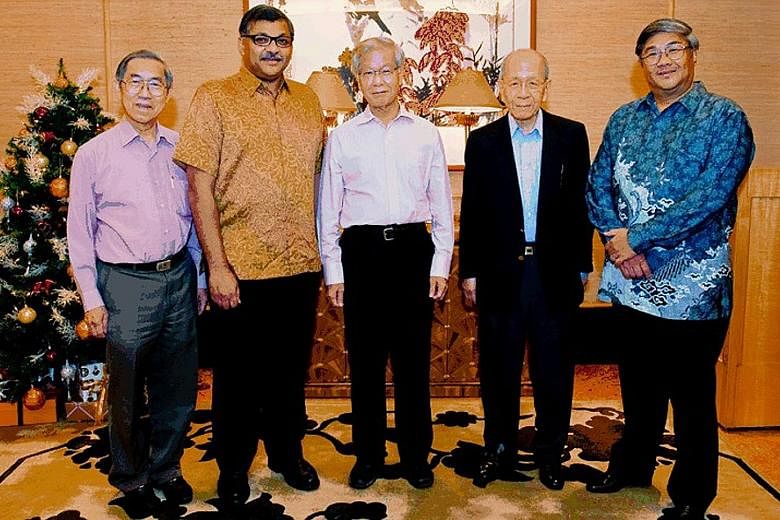When he became Singapore's first minister of state for law in 1981, former senior minister S. Jayakumar was given an office at the Attorney-General's Chambers (AGC) in High Street.
This was because the Law Ministry then had a small office at City Hall. But on his request, Professor Jayakumar's office was soon housed within the ministry.
"I told the then Attorney-General Tan Boon Teik that it was not proper for a minister of state for law to be housed in the AGC because it would raise all sorts of questions about the AGC's autonomy," recounted Prof Jayakumar.
In an interview for a book launched yesterday marking the AGC's 150th anniversary, the former deputy prime minister spoke about his experience in working closely with AGC officers between 1981 and 2008, as minister of state for law, second minister for law and then law minister.
He underlined the importance of a "proper working relationship" between the Government, the AGC and the law minister.
As public prosecutor and the Government's chief legal adviser, the AG is an important institution in Singapore, but his dual role may lead to a common misunderstanding of the AG as a "government man", said Prof Jayakumar.
He cited an example of how the public may be disappointed if they approach MPs and the law minister to drop or reduce charges against them or family members.
"When the Ministry of Law received such letters, I or the ministers of state for law could do no more than to refer them to the AGC, which would treat it like any other representation," said Prof Jayakumar.
Ministers also need to understand why the AGC may give opinions and advice that may have constraints on certain policies, he added.
In turn, the AGC needs to appreciate where the Government is coming from, and suggest creative approaches to achieve policy objectives without being legally offside.
Prof Jayakumar said that as law and home affairs minister, he would have regular monthly lunches with then AG Chan Sek Keong. They were later joined by then Home Affairs Minister Wong Kan Seng, after Prof Jayakumar relinquished the portfolio in 1994.
"There was no hard agenda, but these lunch sessions enabled us to better understand each other's approaches and thinking," he said.
The book also interviewed two former AGs: Justice Steven Chong, who was AG from 2012 to 2014; and former Court of Appeal judge V.K. Rajah, who served from 2014 to this January.
Mr Chong stressed the need for the AGC to constantly evolve.
He said: "If you don't evolve, if you don't adapt, you fossilise. So you don't change for the sake of change. But you change to deal with new kinds of landscapes."
Mr Rajah, who was succeeded by Mr Lucien Wong, said AGC officers will have to deliver the best legal services that protect and enhance Singapore's interest.
"They must continue to place the institutional interests above their personal interests, and these are challenges that different individuals will adjust to in different ways," he added.
Ng Huiwen


